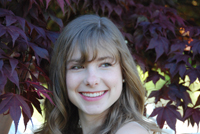Page 80 • (808 results in 0.149 seconds)
-
) tells the story of those five guys reaching the age of forty and starting to gather at least once a year, usually for golf and always for reconnecting and reminiscing. In addition to their remarkable three-plus decades of togetherness, despite several thousand miles of separation in three directions, they were a notable group: Doug Leeland, an MD; Tom Lorentzsen, a doctor of optometry; Al Hedman, a PhD in psychology; Tim Sherry, with an MA in English from the University of Chicago and an impressive
-
semester hours In addition to the music courses listed, all music education majors are required to take the following courses in the School of Education. EDUC 391: Foundations of Learning (3) EPSY 361: Psychology for Teaching (3) EDUC 320: Issues in Child Abuse and Neglect (1) EDUC 468: Student Teaching – Secondary (10) The WEST-E exam in the appropriate area of concentration is taken during the senior year and must be passed prior to student teaching. Admission to the School of Education requires
-

one day I might become a nurse educator. However, prior to further exploring the option of graduate studies I would like to gain experience working in the field. Kelsey Yonce – Bachelor of Arts in psychology, minor in sociology Why PLU? To be completely honest, I chose PLU because of its proximity to my high school boyfriend who was attending UPS. Like most high school relationships, that one didn’t last past graduation, so it’s definitely not a method I recommend for choosing a university! Kelsy
-
stressed evolutionary continuity in the emergence of human intelligence. Increasingly, researchers are focusing on understanding animal minds and thought as distinct from human thought. As Marc D. Hauser, professor of psychology and neuroscience at Harvard, writes in Wild Minds: What Animals Really Think (Henry Holt 2000), “We share the planet with thinking animals . . . . Although the human mind leaves a characteristically different imprint on the planet, we are certainly not alone in this process
-
of self, rather than a dreamed-of salary. In short, discovery of the authentic I inspires professional creativity, and compassionate, reflective citizenship.Creating an environment that promotes lifelong honing of the I is what liberal education is all about. As such, the undergraduate “liberal arts” skills that students learn, be they history, biology, a foreign language, or psychology, should in praxis be a mere framework through which an attentive teacher lays a path for students to discover
-
awarded two degrees within the same discipline. (Example, B.A. and B.S. in Psychology). Second Bachelor’s Degree Earned – Returning Students Students cannot return to have additional majors or minors posted to their records once they graduate unless they complete an entirely new degree. Students who return to PLU to earn a second bachelor’s degree after earning a first bachelor’s degree or those who earned their first degree at another institution must meet the following requirements: Current Catalog
-
including hand-built and wheel-thrown methods and glaze application. Includes a survey of ceramic art. (4) ARTD 280 : Art Methodology and Theory - CX Explores art historical and critical methods used for the analysis of art, including formalism, iconography, iconology, economic/social contexts, psychology, feminism, and structuralism/semiotics. Relates methods to broader cultural theories from Kant to Edward Said. (4) ARTD 287 : Special Topics in Art To provide undergraduate students with new, one-time
-
school house this past year included beginning the restoration of the Performing Arts Center and Chapel at Eastvold, with exterior brickwork repair and cleaning and a beautiful new copper roof. Interior work will begin in the year ahead. This summer’s remodel of the University Center mezzanine provided excellent new space to serve students through the Counseling Center and Disability Support Services. It also made possible the long awaited relocation of the Psychology Department to the first floor of
-
the craft of the 21st century composer/arranger, including counterpoint, orchestration, and the development of thematic material into a composition. Prerequisite: MUSI 235 or consent of department chair. (4) MUSI 240 : Introduction to Music Education Introduction to the profession. History and philosophy of music education. Developmental characteristics of students and learning styles. Introduction to national and state standards. Lesson design with emphasis on writing objectives. 15 hour
-
including hand-built and wheel-thrown methods and glaze application. Includes a survey of ceramic art. (4) ARTD 280 : Art Methodology and Theory - CX Explores art historical and critical methods used for the analysis of art, including formalism, iconography, iconology, economic/social contexts, psychology, feminism, and structuralism/semiotics. Relates methods to broader cultural theories from Kant to Edward Said. (4) ARTD 287 : Special Topics in Art To provide undergraduate students with new, one-time
Do you have any feedback for us? If so, feel free to use our Feedback Form.


